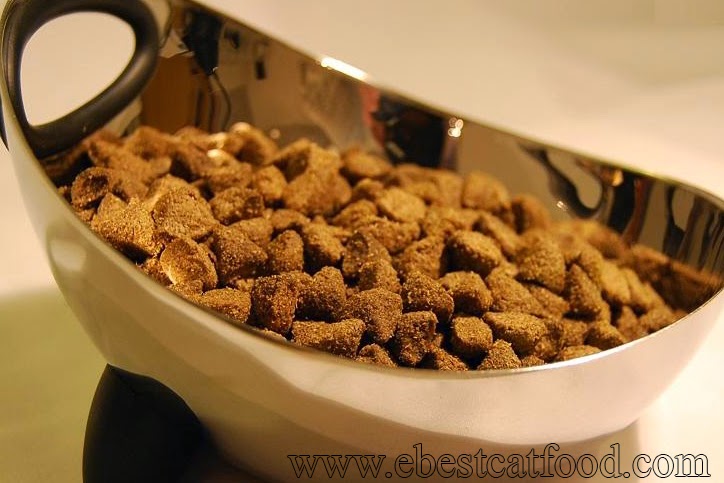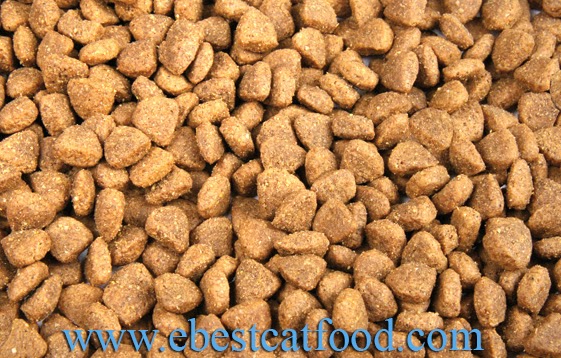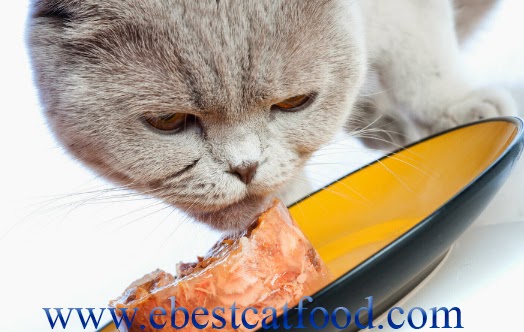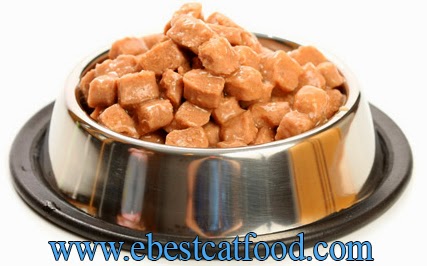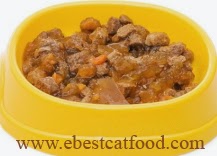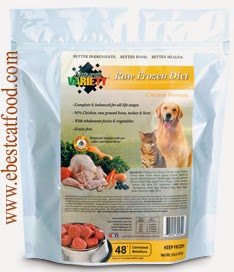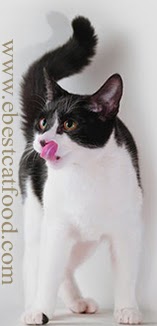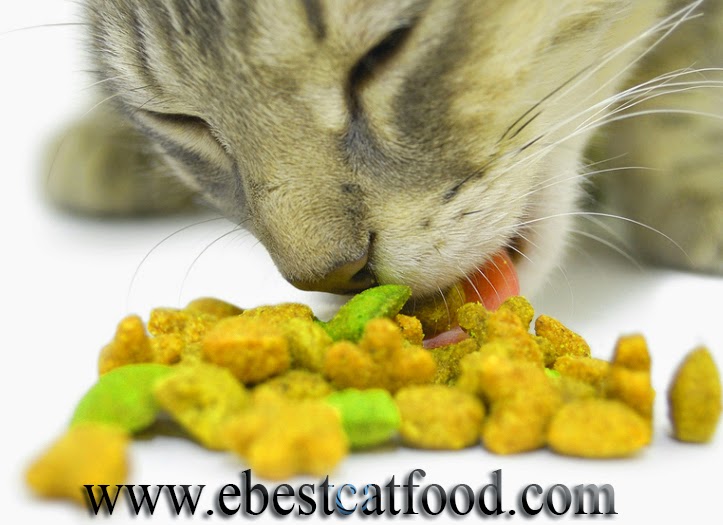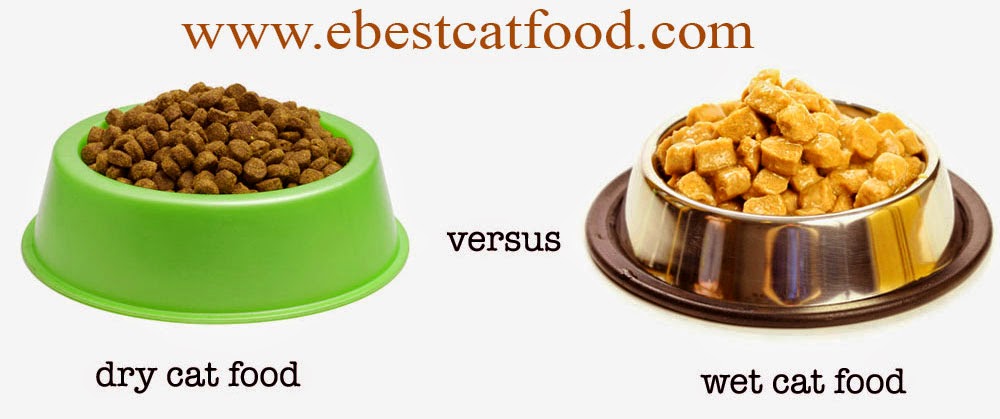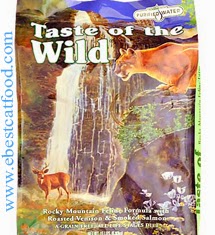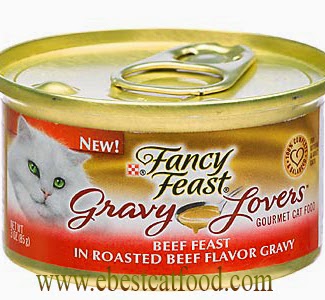Cats are obligate carnivores. They need 2-3 times more meat than dogs. Their natural prey is rodents, lizards, and birds. It’s not possible to give them this level of protein in dry food diets, although high protein in natural, holistic cat foods get might close to it.
Cat Fancy magazine ran a story during the summer of 2007 featuring their readers’ oldest cats. The oldest cat was 36 years old! And there were many cats in their 30’s!
Did you know that the natural lifespan of a cat is 27-30 years?! We’ve gotten used to “senior cats” at age seven and greater, and are proud of our oldest kitties living 17-20 years. The truth is, they could live much longer if we were feeding them closer to what they would eat in nature.
One of my readers asked an excellent question on December 20:
Wait a minute…I thought canned food wasn’t as good for animals as dry food??? It supposedly doesn’t have as much vitamins and nutrients as dry food. I’ve always been told by my vets, and have also read, that you should only use canned food as a “treat”, every once in a while, maybe 2 - 3 times per week with their regular dry food, and only a small amount at a time.
Hmmmm? Could you please explain why you believe the opposite and where you received your findings?
I can understand why a veterinarian would say that. Most veterinarians, like our personal physicians, get very little training on nutrition.
But once you look into natural nutrition and natural healing for pets, you’ll discover that every HOLISTIC veterinarian recommends high quality canned cat food. [And the definition of HOLISTIC, whether it’s for humans or animals, is an emphasis on the WHOLE creature — diet, exercise, water intake, emotions and stress levels, environment].
Let’s talk first about why you want to avoid the high-carb dry diets and then about seeking out the nutrient-rich wet cat food diets. Most of the canned cat foods you would find in the grocery store or even PetSmart and PetCo would not fit the definitions I’m going to give you on high quality holistic canned cat foods.
Avoid Carbohydrate-rich Commercial Dry Cat Foods
In other words, no corn, no wheat, no soy, no sorghum
Let’s start with my favorite holistic pet resource, Animal Wellness Magazine. By the way, their next issue (January 2008) is a cat issue and their annual Feline Wellness Magazine is due out in February 2008. Get them!!
Dr. Elizabeth Hodgkins, DVM, Esq. has an article in the December/January 2008 issue on feline fatty liver disease. She makes some very important statements about dry cat food diets.
Feline fatty liver disease, hepatic lipidosis (HL) is a condition we see with some frequency in cats. It’s invariably linked to the carbohydrate-rich commercial diets, especially the dry ones, so commonly fed to felines. These high-carb diets assault the sugar-controlling functions of both the liver and and the pancreas, causing obesity and predisposing the cat to HL.
It is impossible to overstate the importance of preventing obesity by avoiding commercial dry cat foods.
If your cat is overweight, removing poor quality dry food from the diet and switching him to a low-carbohydrate, high-protein premium food will help take off the excess pounds.
Feline Diabetes
She does not mince words about the connection between dry cat food and feline diabetes. On her web site at http://www.yourdiabeticcat.com, she states, “Without the constant feeding of highly processed, high carbohydrate dry foods, better suited to cattle than cats, adult-onset feline diabetes would be a rare disease, if it occured at all.“
IBD (Inflammatory Bowel Disease)
Dr. Lisa Pierson, DVM, states, “Too often these cats are treated with a high level of steroids and a so-called ‘prescription’ DRY diet. I feel very strongly that this common therapeutic regimen needs to be re-evaluated. There are an impressive number of anecdotal reports of cats that were terribly ill with IBD exhibiting dramatic improvement when ALL dry food was removed from their diet.“
CRF (Chronic Renal Failure)
Dr. Lisa Pierson, DVM, states, “It is troubling to think about the role that chronic dehydration plays in feline kidney failure. And remember, cats are chronically dehydrated when they are on a diet of predominantly dry food.”
Diarrhea
Diarrhea and other allergy-related conditions are often caused by corn or wheat fillers in dry cat food. After eliminating other potential medical causes, switching to canned or raw food can make the diarrhea go away almost overnight.
Sensitive Stomach
Again, after eliminating other potential medical causes, you could be very surprised to discover that your cat throws up far less often when you take away foods and treats that are made with corn and wheat fillers.
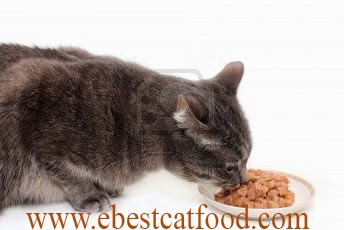
This list could go on and on. Pancreatitis, liver disease, allergies, even epilepsy have been linked to the high carb, grain-based diets in standard commercial pet foods.
We’ve covered why you don’t want dry diets. Let’s look at why you NEED canned, wet food diets for your cats.
Holistic Vets Explain Why Cats Need Canned Cat Food
a very highly regarded holistic veterinarian, recommends MORE or ONLY canned cat food diets:
“Canned foods are higher in fat and protein, and lower in carbohydrates, than dry foods. Their high water content increases the cat’s overall fluid intake, which keeps the kidneys and bladder healthy. The higher fat contributes to skin and coat health. Because the ingredients are more easily digested and utilized by the cat’s body, canned foods produce less solid waste in the litterbox.
“Adult cats need 2-3 times more protein than dogs. Yet dry cat foods generally supply only about 1/3 more protein than dry dog foods—about 30-35% in dry cat food compared to 20-26% for the average dry dog food. “Kidney” diets for cats in renal failure are even more restrictive with 26-28% protein (such diets should never be fed to normal cats; they will cause muscle wasting as the cat breaks down its own body for protein). Canned cat foods contain 45-50% protein, and canned kitten foods may contain up to 55% protein. (All percentages calculated on a dry matter basis.)
“There is increasing evidence that carbohydrates (starches and sugars) in dry food are simply not metabolized well by many, if not most cats. While obesity is caused by many factors, the free-choice feeding of dry food to a relatively inactive cat is a major player. Obese cats are prone to joint problems, liver and kidney disease, and diabetes.
“Recent research has shown that high-carbohydrate diets are to blame in most cases of feline diabetes. Many overweight cats are carbohydrate-intolerant, and should be fed low-carbohydrate diets (think “Catkins” diet!). This means canned food. Experts are now recommending canned kitten food as the primary treatment for diabetes.Many diabetic cats can decrease or even eliminate their need for insulin, simply by changing to a high-protein, low-carbohydrate diet. Ultimately, canned food may be even more beneficial as a preventative for this devastating disease.
Hydration
another reason for adding MORE or going to ONLY canned cat foods is to increase your cat’s fluid intake. Cats are desert animals and have a poor mechanism for drinking water. In nature, they get fluids from their prey. And so they are prone to diseases that come from not enough water, such as urinary and kidney problems. The more water a cat takes in, the lower the risk of bladder stones/crystals and feline lower urinary tract disease (a common cause of painful urination and urination outside of the litterbox).
But can you get enough nutrients in canned cat foods?
Most of the concern about lack of nutrients in canned cat foods come from an old study performed by Dr. Francis M. Pottenger over 50 years ago, which resulted in evidence that a cooked meat diet caused physical deterioration in cats and their offspring, over a period of time. Contemporary experts have questioned whether it was the lack of taurine, rather than the cooking, that caused the nutrional deficiencies Pottenger cited.
In the citations by holistic vets noted above, not one suggested that there would not be enough nutrients in today’s canned cat foods. So let me just start by showing you a comparison of what you would get in a holistic food vs. what you would buy at the grocery store.
Note that the holistic food at the left, Instinctive Choice, can be fed to cats with obesity, diabetes, kidney problems, and urinary tract problems, making it an excellent choice for those of us tending to sick animals. Note: It can’t be fed to cats with pancreatitis. If you have questions, always take the pet food’s fact sheet, available from the rep or the company, to your vet to ask their opinion.
Notice the use of by-products, wheat, non-chelated minerals, artificial colors and preservatives in the commercial canned cat food on the right.
Instinctive Choice by HealthyPetNet Organic Chicken
Chicken Liver
Chicken Broth
Turkey
Chicken Meal (Preserved With Mixed Tocopherols)
Shrimp
Fish Oil
Ground Agropyron Repens Grass
Calcium Sulfate
Guar Gum
Minerals (Iron Amino Acid Chelate, Zinc Amino Acid Chelate, Cobalt Amino Acid Chelate, Copper Amino Acid Chelate, Manganese Amino Acid Chelate, Sodium Selenite, Potassium Iodide)
Choline Chloride
Sea Salt
Taurine
Vitamins (Vitamin E, A, D3, B12 Supplements, Thiamine Mononitrate, Niacin, D-Calcium Pantothenate, Pyridoxine Hydrochloride, Riboflavin Supplement, Folic Acid, Biotin)
Inulin
Rosemary
L-Carnitine | 9 LivesMeat by-products
fish
water sufficient for processing
poultry by-products
fish broth
tuna
shrimp
wheat gluten
calcium carbonate
wheat flour
sodium tripolyphosphate
salt
titanium dioxide
guar gum
potassium chloride
dried whey
steamed bone meal
natural flavor
choline chloride
vitamins (vitamin E supplement, vitamin A supplement, thiamine mononitrate, niacin supplement, d-calcium pantothenate, riboflavin supplement, pyridoxine hydrochloride, menadione sodium bisulfite complex, vitamin D3 supplement, folic acid, biotin, vitamin B12 supplement)
carrageenan
taurine
minerals (magnesium oxide, ferrous sulfate, zinc oxide, manganous oxide, copper sulfate, calcium iodate, sodium selenite)
iron oxide
caramel color
sodium nitrite (to promote color retention)
red 3. |
In a separate article, I will review the ingredients in a number of reputable holistic canned cat foods. Generally, you will have to purchase them at a health food store or via telephone or online as they are not available at grocery stores or the pet discount stores.
My preference is Instinctive Choice. It’s an exceptional food, you can get wholesale pricing just by setting up automatic shipping, and it is shipped direct to your door via UPS or USPS, making it accessible even to people who do not live close to a health food store. Unfortunately, it is only available within the United States.
